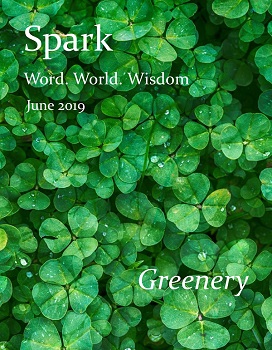by Vani Viswanathan
Vani recounts instances when ‘wokeness’ clashed with joy.
Years before I became an insufferable ‘woke’ woman, I enjoyed many things. Films and TV serials, which I lapped up with interest, laughing at some and taking others seriously. Advertisements, and songs. Watching kids play, or watching TV with them. News channels, especially NDTV, which I faithfully went to during breaks between studying for class 12 boards. Men’s tennis, because I’d given up on the women’s game when the Williams sisters started winning all the slams.
A few years ago, unfortunately, most of these stopped giving me simple, unadulterated joy.
Because thanks to two years in a social sciences school, Twitter, and a few years in an NGO, I’ve learnt the many ways in which the world and its people are misery-inducing, sexist, racist, casteist and ableist. How only few things are made which are fair to all in a terribly unjust world. How every single piece I read or watch is not inclusive.
When I was in my naïve early 20s, the biggest issue that sucked my joy out of entertainment was the lack of, or poor representation of, women. It still is my biggest grouse, but now I’ve added other nuances such as the broader gender spectrum, religion, the environment, sexual identities, caste, disability, region and language.
With this revelation about the bad world, I was charged up. ‘Let’s find everything that’s wrong and point it out for the greater good!’ became a mantra. I went about talking, arguing, writing, ranting, and tweeting about the terrible things I saw every day or had seen at some point. The Tamil movie Singaravelan, which used to crack me up, became a cringe fest. I was aghast that jokes on Khushboo’s body, stalking and sexual harassment were fed to me on a platter as a child. I couldn’t get past five minutes of an Indian TV soap without laughing at or commenting about its regressive characters or scenarios. Sexist/racist/communal WhatsApp forwards made me judge friends and relatives and wonder how I could continue to be friendly without considering this aspect of them. Any talk of religion and I would roll my eyes because, well, religion was, in my mind, unfair and violent. News made my blood boil, either because of the news itself (‘Man kills youth because of parking dispute’), or because of how poorly it was reported (‘alleged rape’). When I spent time with kids, watching them play or watching TV with them, I constantly wondered about how they were being socialised according to gender stereotypes so early on. Friends and colleagues shared news about issues on these lines from the world or from their lives. And if at all I seemed to have missed something, Twitter made sure to fill me in.
Rant, educate, stay informed, fight. Kattravai, pattravai, types. Except, a little more work backstage, like through trainings or writing, as opposed to out on the streets.
Oh, it was a glorious few years! I felt like I was doing something useful, bringing more people into my little world of rage and dissatisfaction at status quo. After all, if everyone lived in ignorance, how would the world change for the better? Just flagging these issues brought me a weird kind of joy, like I was part of something bigger than me.
As you can imagine, at one point, it got tougher to simply live and interact with people. Surely, I should have expected that if a friend can’t even mention a series without me pointing out the deeply problematic issues it has (no matter whether I’ve watched it or only read about it), they will get annoyed, or if they’re kind, bored. Discussing marriage as a heteropatriarchal, sexist institution didn’t win me any favours from my husband or other family members. I think some young parents I know have been annoyed because I may have, not-so-subtly, pointed out gender stereotypes among their children. There were fewer and fewer forms of entertainment sources that I had that I could turn to without getting upset.
Thanks to nuanced discussions at work and with friends, and some overt signaling from others about how I may be going a bit overboard, I got a chance to reflect on my getting-agitated-to-agitate act. This was an eye-opener, because I wasn’t even the Twitter warrior who was going around responding to offensive tweets or trolls, or working in a space that promoted an feisty activist-y life – and I thought that kept me safe from burning out.
However, wokeness was clearly coming in the way of joy of many kinds. Of enjoying kids’ meaningless activities. Of basking in the warmth of marriage and the resulting companionship, whose benefits I enjoy even if I criticise the institution. Of the mindlessness that watching entertainment allows, and the connections and conversations it could help me easily make with people.
Now, you may argue that seeking joy from the outside is not the best way to live, spiritually speaking. I agree. I wish I had a smarter-sounding response, but I don’t. I have chosen to work in the development sector, so in my lifetime I will be surrounded by things that aren’t going well enough. As such, pegging simple activities to derive joy from, despite the often-bleak world around me, is essential.
I don’t think I’ve cracked the puzzle yet but I think I’ve made progress. I skim through the newspaper’s Delhi pages and ignore politics and only read op-eds that are relevant to my areas of interest. I’m selective about the series I watch. When I watch movies from years ago, I remember that times have changed – so that means it’s silly to use our learnings from today to measure content from then. I dispassionately read and delete the jokes that come through on WhatsApp, and don’t react when family members support politics that are against my belief. On Twitter, I have unfollowed sources that made me agitated, and I’m trying to build a happier, more personal Twitter that is not angst-driven.
Some of these changes have positive effects. I’m somewhat more open to opposing views and kinder to the people holding them, because I know their opinions have been formed over years of conditioning or due to their unique experiences (I have a lot of work to do in this area, though). I’ve found that ranting works better with some groups of people who just get it – it helps us each get sympathy or empathy and then move on. I’ve learnt that it’s ok for me to stay quiet if I’ve to participate in something not quite aligned to my beliefs – be it a religious ceremony or a visit someplace. Because if my being there brings joy to people who matter, that’s all that should matter to me.
In this process, little by little, joy has crept back in. When the mind and body aren’t agitated, somehow it also becomes easier for me to focus on what I actually want to, and can, change. I’d like to think that this gives rise to a new kind of joy – I’m increasingly more ‘woke’ when it comes to enjoyment.
Recently, I watched an adorable karate ‘belt test’ for kids. My inner antenna went up to see how the girls were performing compared to the boys. The girls, tinies in the first level with a white belt, were half-heartedly kicking, their punches carrying no weight. Their ‘hiya’s were subdued, and often late. But I made myself look beyond this, and when I did, I felt a sparkle of joy within. The tiniest one took her presence there very seriously. A pair of twins were beautifully coordinated, it was a delight to watch. Another was dazed and confused, giving me a reason to smile. I realised that more than being distraught, I was happy that the little girls were there. I did shred the session to pieces with my partner later, but the image of the girls – just being there, and trying – did bring me joy.
Vani Viswanathan writes fiction and non-fiction, and works on gender, sexuality and development communications in New Delhi. Her first dedicated foray into writing for the world was when she started a blog in 2005. Her writing typically focuses on the marvellous intricacies and laughable ironies in lives around her. She draws inspiration from cities she’s lived in or visited. Her writing can be accessed on www.vaniviswanathan.com.







An interesting journey from woke to joy.